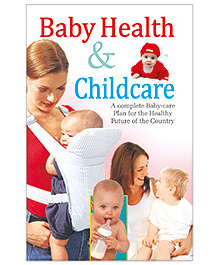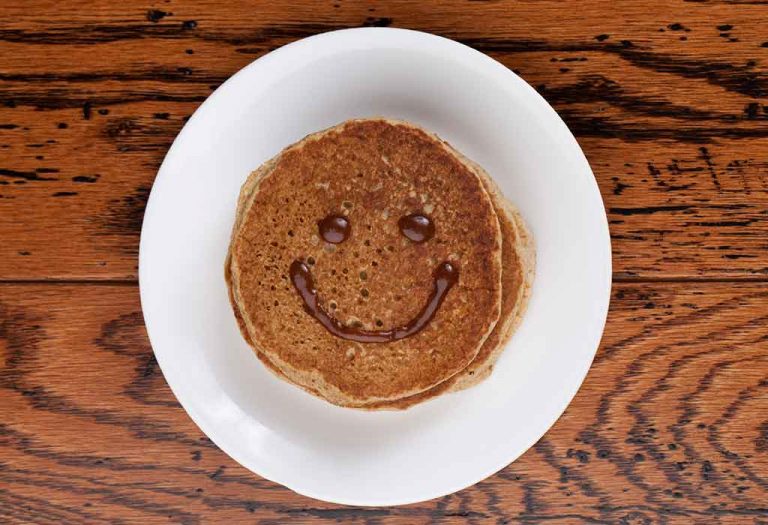7 and 8 Months Old Baby’s Routine
Your 7 and 8-month-old baby is rapidly developing new skills, and their daily routine plays a crucial role in supporting this growth. Routines are essential to ensure that your baby does not get overtired, too hungry, or over-excited, which can then translate into angry outbursts, tantrums, and rebelliousness. Establishing a consistent 7 and 8-month-old baby’s daily schedule helps provide the structure they need to thrive while allowing flexibility for their developmental milestones. This will also mean less stress and anxiety for you. As you spend time with your baby, you will get an inkling of your baby’s eating, sleeping, and playing preferences. Based on this, you can arrive at a suitable schedule for both of you.
Keep reading to learn more about the typical daily routine for 7 and 8-month-old babies.
Needs of Seven and Eight Month Old Babies
Around this age, babies get curious about things and people around them. They will most likely be testing their motor skills and getting mobile. Picking up things, crawling or rolling, and babbling are just some things babies experiment with at this age. Seven and eight-month-old babies look forward to playtime and enjoy playing with you. They are also able to show their emotions and may also show signs of separation anxiety or stranger anxiety (4). So, you must arrive at a schedule that will encourage your baby’s development throughout the year. Here are some of your baby’s needs and requirements at this age.
- Naps – Naps might be more predictable than when your baby was a newborn, but they will still be pretty erratic. Cues to look out for include rubbing the eyes, yawning, and slowing activities. Try associating certain activities with nap time, like changing diapers or reading a story. This will help your baby understand that it’s time to sleep. Be sure not to skip nap time because babies are in a phase of fast growth and can need up to 2 to 3 naps a day (2).
- Meals – A baby must be fed several times daily – maybe every two to three hours. Once your baby starts solid foods, after six months, you might be able to co-ordinate your mealtimes. However, apart from meals, your baby will still need to be fed formula or breastmilk around five to seven times daily. Again, making a small ritual can help your baby know when it is time to eat (3).
- Play – It will take some effort to understand the best time for active or quiet play. Some children enjoy playtime soon after they wake up from a nap. Learn to identify cues that indicate that your baby is bored, such as turning fussy or expressing frustration with the toys in hand or at you in general.
- A Good Night’s Sleep – A bedtime routine is crucial because you need it to ensure your child sleeps at a decent hour when they are older and at school. Babies of this age need 12-14 hours of sleep in 24 hours, including nighttime sleep and naps to ensure they grow well and stay healthy (1).
Sample Baby Schedule of Breastfeeding Mother of 7 to 8-month-old baby
When drafting a schedule for babies this age, remember that they will need solid food at least two to three times each day and breast milk or formula at least five to seven times per day.
Here are some typical schedule samples that can give you ideas about coming up with your own based on your schedule and baby’s needs:
Schedule 1 – Stay-at-Home Mom
7 a.m.: The baby wakes up and nurses for about 20 minutes.
7:30 a.m.: Plays with toys for a while mom prepares breakfast.
8 a.m.: Baby has breakfast, often rice cereal or oatmeal and fruit mashed or pureed.
8:30 a.m.: Another round of playtime.
Between 9 and 9:30 a.m.: Baby again nurses for around 15 minutes before taking a nap.
11 a.m.: Baby wakes up and gets more playtime.
Noon: At lunchtime, the baby eats some mashed veggies and fruit.
12:30 p.m.: Time to play outdoors.
1:30 p.m.: Baby nurses for 15 minutes and then takes a nap.
3:30 p.m.: Baby wakes up, and it is playtime outside.
4 p.m.: Another round of nursing.
5 p.m.: Time for dinner with some mashed food.
5:30 p.m.: Playtime or a stroll in the park.
6:30 p.m.: Baby gets a bath.
7 p.m.: Baby nurses for a few minutes before turning in for the night.
Baby might wake up around midnight for about 15 minutes of nursing before returning to sleep. Some children might wake up more frequently at night.
Schedule 2 – Breast Pumping Working Mom
5 a.m.: Nurse, change baby’s clothes and diaper, and let baby down for some more time while you get ready for work.
6:45 a.m.: Nurse again and take baby to daycare.
7:30 a.m.: Baby has breakfast at daycare with some cereal and mashed or pureed vegetables and fruit.
9 to 10 a.m.: Baby takes a refreshing nap.
11 a.m.: Baby has lunch which includes pumped breast milk and baby food
1 to 2:30 p.m.: Time for baby’s afternoon nap.
3 p.m.: A healthy snack with finger food and some fruit.
3:30 p.m.: You go to pick up baby and after nursing, head home for some play time.
5:45 p.m.: Enjoy dinner with baby. Baby eats cereal, pureed vegetables, and fruit.
7 p.m.: Start the bedtime routine with a massage, followed by bath and a story. Baby then nurses and sleeps off.
Baby might wake up once during the night for a short feed before going back to sleep. Some children might need more breastfeeding at night.
Sample Baby Schedule of Formula Feeding Mother of 7 to 8-Month-Old Baby
The appetites of different babies can vary, and since they are still too young to communicate their needs accurately, it is best to have an idea of how much formula your baby needs in a day. Babies over six months are estimated to require about 75 ml of formula each day for 453 gm of body weight. It is important to know that babies should not drink more than 960 ml of formula in 24 hours (5). Here are some sample schedules for a formula-fed baby.
Schedule 1 – Stay-at-Home Mom
6 a.m.: Baby wakes up.
6:20 a.m.: Baby has a bottle and plays for a while.
7:30 a.m.: It’s time for breakfast with the family, and the baby eats finger foods, such as fruit and cereal.
8:30 a.m.: Baby plays with toys or sits in the bouncy chair while mom finishes chores and gets ready. Then, the baby takes a nap.
10:15 a.m.: On waking up, the baby gets another bottle of formula. Then, mom and baby go out for a while.
11:30 a.m. – noon: Come back from an outing and have lunch.
12:45 – 2:30 p.m.: Baby retakes a nap and a bottle after waking.
3 p.m.: Some playtime outside with sibling or pet.
5:15 p.m.: Dinnertime followed by some play.
6 p.m.: Time for another bottle of formula and then the bedtime routine with bath and story.
7 p.m.: Baby is asleep and does not wake up at night.
Sometimes, between two and four months of age, formula-fed babies stop needing feeding in the middle of the night. But every baby is unique, and if your baby seems to be feeding too frequently, check with your doctor.
Schedule 2 – Stay-at-Home Mom of Twins
Managing twins can prove overwhelming, especially if you don’t have any help. Here is a sample routine you might want to refer to:
7 a.m.: Wake up and have a bottle of formula each.
8:15 a.m.: Playtime and crawling around on the floor.
9 a.m.: It’s time for breakfast, which could consist of a jar of baby food each, yoghurt, and finger foods.
Between 10 and 11:30 p.m.: The twins take a nap.
12:30 p.m.: Nap time is over, and it’s time to read some books and play outside.
1 to 1:30 p.m.: At lunchtime, the babies have Stage 2 vegetables mashed or pureed, yoghurt, and finger foods. A bottle of formula afterwards completes lunch.
2:30 to 3 p.m.: Time to have fun with grandparents and in the bouncy chair.
4 p.m.: It’s nap time again.
5 p.m.: Nap done; the twins play with toys on the floor.
5:45 p.m.: A bottle of formula.
6:30 p.m.: The bedtime routine starts with a bath and storytelling before tucking in.
7:30 p.m.: A bottle of formula each.
8:45 p.m.: Bedtime, and they sleep through the night.
Schedule 3 – Working Mom
In this sample schedule, the mom works full-time and also travels regularly. She gets help from a full-time nanny who doesn’t live with them.
6 a.m.: Time for baby to wake up.
6:30 a.m.: A formula bottle and the daily reflux medicine dose.
6:45 a.m.: Baby is dressed for the day.
7:15 a.m.: Time for baby’s breakfast, which comprises about a quarter cup of oatmeal cereal with a side of homemade pureed fruit. An egg yolk is mixed in the cereal every other day.
7:45 a.m.: Spending time with mom.
8:30 a.m.: It’s time for the nanny to take over and start the nap routine—diaper change, reading a book, a lullaby, and then into the crib.
9 to 10 a.m.: Baby takes a nap.
10 a.m.: Baby is up and gets a new diaper. It is playtime indoors and outdoors in the shade.
10:30 a.m.: Time for a bottle of formula.
10:45 a.m.: Another round of playtime.
11:30 a.m.: At lunchtime, the baby eats some whole-milk yoghurt mixed with half a teaspoon of ground flax seed and some homemade pureed vegetables.
11:50 a.m. to noon.: Nap routine and nap.
1:30 p.m.: Wakes up and has a diaper change before starting to play.
2 p.m.: A bottle of formula and then playtime.
3 p.m.: Nap routine and then a nap.
4:15 p.m.: Baby is up, has a diaper change, and plays for a while.
5:15 p.m.: Mom returns home and gives baby a bottle as the nanny prepares to leave.
5:30 p.m.: The nanny leaves, and mom starts to put together dinner. Dad comes home. It’s playtime with mom and dad.
6 p.m.: It’s dinner time, and the baby has dinner with mom and dad. The baby eats cereal, homemade pureed veggies, and pureed fruit.
7 p.m.: Time for a walk with mom and dad.
7:30 p.m.: Baby gets a nice massage, bath and changes into a nightdress.
8 p.m.: A bottle of formula and reflux medicine.
8:15 p.m.: Mom starts the bedtime routine, which includes brushing baby’s teeth, reading out two books, a lullaby, and then the crib.
9 p.m.: Baby is usually fast asleep and stays that way all night.
Breastfeeding and Formula Feeding Stay-at-Home Mother
Some babies need formula to supplement their diet for various reasons, ranging from weight gain issues to an inadequate supply of breast milk and problems with pumping. Here is a sample schedule for a breastfed baby and formula-fed baby.
7 to 7:30 a.m.: Baby wakes up along with siblings and nurses.
8 a.m.: All children have breakfast, with the baby eating cereal, fruit, and a bottle of formula.
8:30 a.m.: Some days, the baby is bathed because breakfast gets messy. Otherwise, it’s playtime with siblings while mom eats breakfast.
Between 9:30 and 10 a.m.: Baby nurses and takes a nap. Mom tries to keep other kids busy while doing chores.
Between 11:30 a.m. and noon: Baby wakes up from his nap, and it’s time for lunch. Baby eats meat, veggies, and pureed fruit, as also some finger food and a sippy cup of water
1 p.m.: Time for a stroll or swim.
Between 2 and 2:30 p.m.: Time for a second nap after nursing.
4 p.m.: Baby is up and wants to nurse.
5:30 p.m.: At dinner, the baby has meat and veggies, baby food, and pureed fruit, topped off by a bottle of formula.
6 to 7 p.m.: Some quiet playtime.
7 to 7:30 p.m.: Time for a bath.
8 p.m.: All kids get ready for bed and change into nightdress.
9 p.m.: Baby nurses before dozing off.
3 a.m.: Baby needs to nurse and then sleeps all night.
Things to Consider While Deciding Routine for 7 and 8 Months Baby
You do not have to wait till your baby is 7 months old. Routine can start much earlier, and the sooner the baby gets a schedule, the easier it will be on both of you. Adequate rest, sufficient quantities of food, and enough time to play and learn are some of the things that babies of this age require. Fixing a bedtime for 7-month-old babies might seem too early, but you will realise it is a good thing as your child grows. The same applies to a baby’s eating schedule 8 months is just the right time to start emphasising to your child that a schedule can bring some order to life.
FAQs
1. How can I create a consistent bedtime routine?
A consistent bedtime routine helps signal your baby that it’s time to sleep. This routine might include a warm bath, reading a book, gentle rocking, and dimming the lights. Try to start the bedtime routine at the same time every evening to help your baby wind down and sleep better through the night (6).
2. Is it okay to vary the daily schedule?
While consistency is important, it’s also okay to be flexible with your baby’s schedule. Babies may need adjustments based on growth spurts, teething, or changes in their developmental needs. The key is to maintain a general routine while being responsive to your baby’s cues.
While a general routine can help you plan your day, it is important to remember that individual needs play a large role in deciding a baby’s feeding schedule. Over time, you are sure to find the best routine for yourself and the baby.
Disclaimer: This information is just a guide and not a substitute for medical advice from a qualified professional.
References/Resources:
1. 7-9 Month Old Baby Development & Milestones; Children’s Hospital of Orange County; https://choc.org/primary-care/ages-stages/7-to-9-months/
2. Developmental Milestones – Seven & Eight Months; Nebraska Early Development Network; https://edn.ne.gov/cms/developmental-milestones-seven-eight-months
3. Your baby’s development: 6-9 months; NCT; https://www.nct.org.uk/baby-toddler/your-childs-development/your-babys-development-6-9-months
4. Separation Anxiety; Nemours KidsHealth; https://kidshealth.org/en/parents/sep-anxiety.html
5. Amount and Schedule of Baby Formula Feedings; American Academy of Pediatrics; https://www.healthychildren.org/english/ages-stages/baby/formula-feeding/pages/amount-and-schedule-of-formula-feedings.aspx
6. Sleep and Your 4- to 7-Month-Old; Nemours KidsHealth; https://kidshealth.org/en/parents/sleep47m.html
Also Read:
Bedtime Routine for Babies
5 and 6 Months Old Baby Daily Schedule
7 to 9 Months Old Baby Daily Schedule
Newborn Baby Feeding and Sleeping Schedule
Sample Schedule To Follow For Your 9-10 Months Old Baby
Was This Article Helpful?
Parenting is a huge responsibility, for you as a caregiver, but also for us as a parenting content platform. We understand that and take our responsibility of creating credible content seriously. FirstCry Parenting articles are written and published only after extensive research using factually sound references to deliver quality content that is accurate, validated by experts, and completely reliable. To understand how we go about creating content that is credible, read our editorial policy here.























.svg)


















